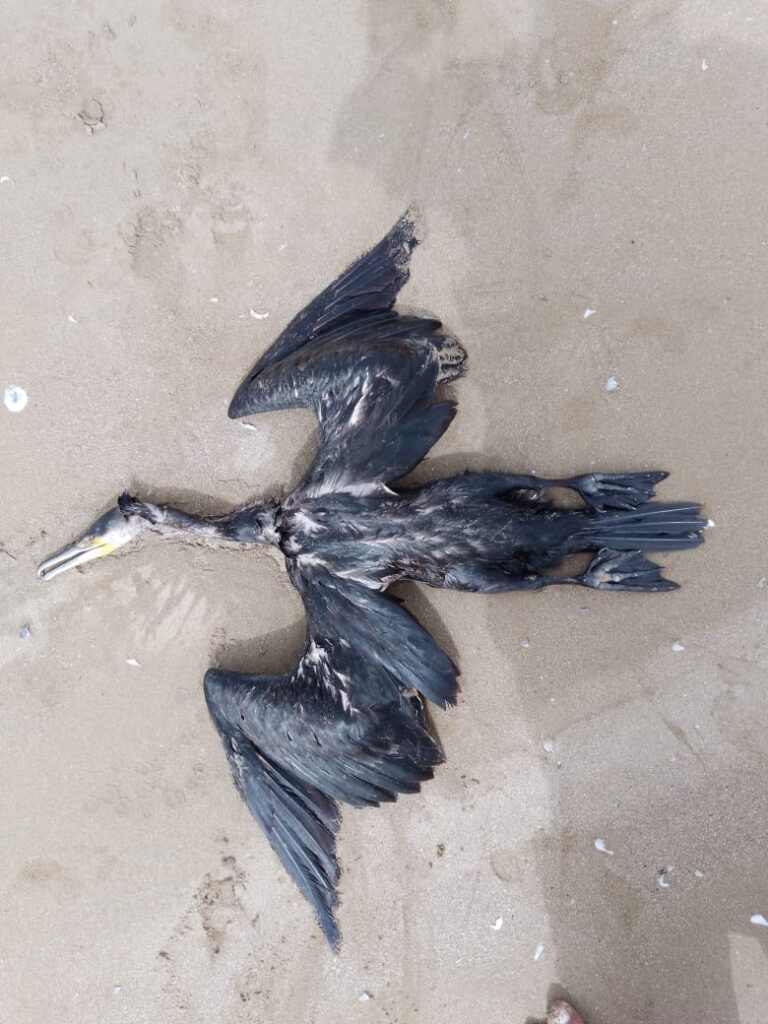Marine Life at Risk as Plastic Pollution Surges in Coastal Areas
Zareef Baloch
Gwadar: “The plastic you are using without thinking will eventually return to your plate and enter your body,” warns Afrah Naseem Malik, a program associate at the International Union for Conservation of Nature (IUCN).
Speaking at a recent event in Karachi, Malik highlighted the alarming impact of plastic waste, stating, “Plastic is making its way from marine life into the human body through the food chain.” She explained that fish and other marine species often mistake plastic for food due to its scent, leading to fatal consequences.
“Marine animals venture out in search of food, detect the scent of plastic, and die attempting to consume it,” she added, stressing the urgent need to address this environmental crisis.
“The choices we make today will determine the quality of life for future generations,” Malik concluded, urging immediate and sustained action to combat this growing threat.
Coastal Plastic Pileup
The coastal areas of Balochistan, including remote beaches at Kund Malir, Lasbela, and Gwadar, are increasingly becoming polluted with plastic waste, including plastic bags and discarded fishing nets.
This pollution is not only endangering marine life but also poses significant risks to human health, particularly for the local communities who rely on fish, prawns, and other marine life as a primary food source.
A report by WWF Pakistan highlights the severe impact of plastic pollution on marine species and the surrounding coastal and offshore waters. It is reported that globally, one in three marine mammals has been affected by plastic waste.
Plastic is non-biodegradable and can take up to 500 years or more to decompose. When plastic waste is discarded, it contributes to environmental degradation, including the rise in global temperatures.
As plastics break down into microplastics, these particles infiltrate the oceans, harming micro-animals, which are crucial to the entire ocean ecosystem. The presence of plastic waste in the sea has also led to the migration of water birds. Afrah Naseem, an environmentalist, explained that water birds, particularly from Siberia, once regularly visited the Balochistan coastline.
The presence of plastic waste in the sea has also led to the migration of water birds. Afrah Naseem, an environmentalist, explained that water birds, particularly from Siberia, once regularly visited the Balochistan coastline.
However, they have not been observed in the region in recent years. Birds often mistake floating plastic for prey, which can lead to choking or entanglement, resulting in death.
WWF Pakistan reports that out of the 250 tons of plastic produced annually in Pakistan, 163 million tons end up in rivers and oceans. This waste contributes to the 11 million metric tons of plastic entering the world’s oceans each year. Alarmingly, only 9 percent of plastic waste is recycled, and 22 percent is improperly disposed of or left as litter.
To combat environmental degradation, the Balochistan Environment Protection Agency Act of 2021 prohibits projects that harm the environment. The agency monitors such activities and enforces strict actions against violations.
Wali Khilji, Deputy Director of the Balochistan Environment Protection Agency, emphasized that the agency has banned plastic items and that adherence to environmental norms is required for approval of development projects in the coastal areas. Stricter action will be taken against violators.
Marine Life Crisis
 Marine expert Abdul Raheem Baloch stated that plastic pollution severely affects marine life and human settlements in Balochistan. It leads to ingestion and entanglement of marine species, disrupts habitats, and contaminates water with toxic chemicals as plastics break down into microplastics.
Marine expert Abdul Raheem Baloch stated that plastic pollution severely affects marine life and human settlements in Balochistan. It leads to ingestion and entanglement of marine species, disrupts habitats, and contaminates water with toxic chemicals as plastics break down into microplastics.
The human population is also impacted through water and soil contamination, health risks, and economic losses in fishing and tourism. Additionally, plastic waste blocks drainage systems, contributing to flooding.
Experts have called for stricter regulations on plastic production. Marine scientist Humera Rind advocates for imposing heavy taxes on plastic manufacturers unless they produce degradable plastics that do not harm wildlife or human health.
Sustainable Waste Solutions
Abdul Raheem Baloch suggests that local communities and organizations should focus on raising awareness about the dangers of plastic, promoting sustainable alternatives, improving waste management systems, and enforcing plastic bans.
Engaging youth and collaborating with NGOs can further reduce waste. Furthermore, establishing better recycling infrastructure can benefit both the environment and local communities.
Humera Rind believes that education should play a crucial role in tackling plastic pollution. Integrating waste management and environmental awareness into school curricula is essential, as children are key to promoting long-term solutions to the plastic crisis.
By taking these actions, it is hoped that Balochistan’s coastal ecosystems will be protected and the risks posed by plastic pollution to both marine life and human health will be mitigated.
Photo Credit: Zareef Baloch
Zareef Baloch is an environmental journalist based in Gwadar, Balochistan, working as a freelancer.
All information and facts provided are the sole responsibility of the writer.

Comments are closed.